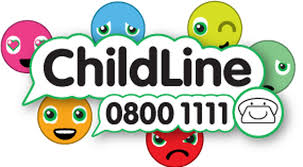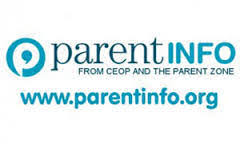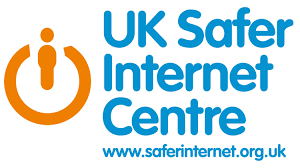Our Safeguarding Statement
Samlesbury Church of England Primary School is committed to safeguarding and promoting the welfare of children and expects all staff, volunteers and members of our community to share this commitment.
We listen to our children and take seriously what they tell us. All school staff are trained in Child Protection, and children are made aware of the adults they can talk to if they have any concerns. Staff are trained to look out for signs of physical/emotional harm or neglect and be aware of extremist views and are required to report these to the Designated Safeguarding Lead (DSL). On rare occasions our concern about a child may mean that we have to consult other agencies. We will ensure that all concerns are discussed with parent/carers first, before any referrals are made, unless we believe that such a move may be contrary to a child’s welfare.
Safeguarding
Below there are links to the school policies related to keeping your child safe. There are other school policies associated with this, not included here. If you have any additional queries or issues, please see the headteacher who will be glad to discuss these matters with you.
Safeguarding
Our Designated Safeguarding Leads (DSLs) are:
-
Mrs Sutton (Co-Headteacher)
-
Mrs Quayle (Co-Headteacher).
What follows is a summary of our Safeguarding policies and procedures within and beyond school
‘Safeguarding is everyone’s responsibility, every day’.
At Samlesbury CE Primary School, the health and safety of all children is of paramount importance. As parents, you send your children to school each day with the expectation that school provides a secure and safe environment in which they can flourish and be happy. In order to ensure that this expectation becomes reality, we put a wide range of measures in place.
Firstly, living our core purpose and embracing our ‘Distinctiveness as a Church School’ supports the well-being of all staff and children at Samlesbury
‘Let your light shine as we live as a light to others, live to do good and live to love God’
Our aim is that the children should develop self-confidence, gain a balanced view of their society and the world through a responsive curriculum and adopt Christian Values that they will carry with them throughout life. We provide opportunities for Reflection and Prayer so that children learn and explore experiences and individuality.
Our Health and Safety Policy
The school has a health and safety policy which is monitored regularly by the relevant committee of the school governors. Each term there is a fire drill that practices efficient evacuation from the buildings. The school conducts an annual Fire Risk Assessment. There is also a critical incidents plan that details what staff and parents should do in the case of emergencies.
First Aid
Our First Aid policy states that members of staff should not feel that they must give medicines to children at any time. Our preference is that in the case of a pupil needing medication during the day parents are welcome to come into school to administer correct dosages. There are, on occasion, exceptional circumstances when special arrangements can be made with the office staff. Supportive paper work from the child’s doctor and appropriate permission slips must be completed for this to happen.
In school there are always trained members of staff who volunteer to oversee first aid. There are a number of first aid kits situated around school. When a child is poorly, or has suffered a accident in school or on the playground there are 4 steps staff follow:
1. A trained first aider is consulted.
2. The incident is logged in the accident book.
3. For head injuries a Head Note is issued.
4. If there is any doubt at all that the injury is serious a parent/carer is contacted with advice to take the child to hospital.
Site security
We do not want parents to feel remote from school and unable to come in and talk to us; our relationship with you is very important. However, we feel that the systems for access into school need to be adhered to consistently. We are asking for your help in this area and thank you in advance for your support.
School is open for all from 8.40am but all children must be in school by 8.45am which is the start of the school day. The rolling start in a morning gives children time to settle in to the school day and be in a focused frame of mind ready to start learning by 8.45am. Staff are also happy to make themselves available at the end of the day if you want to have a quick conversation with them. However if this is not your preference we ask that you make an appointment at a time mutually convenient to both of you. Sandra in the office, will be happy to arrange this for you.
We ask that you support the normal teaching day by not accompanying your children into the classrooms or to enter the school building from the playground as this makes it difficult for staff to give their full attention to the children in their class. It also means that we do not know who is in the building and this has safety implications for the school. We want to encourage your children to develop independence by bringing their own bags, coats and lunchboxes into school and to find lost property during the school day.
If you need to collect a child during school, we ask you to collect them from the office and sign them out. Children will only be allowed home with adults with parental responsibility or confirmed permission.
If for any reason you are late:
If children arrive at school after 8.45 a.m. parents should come into the main entrance so that pupils can be registered and taken to class. We do ask parents to do their best to get children into school ready to start learning at 8.45am. Being just 5 minutes late every day adds up to missing nearly two and a half days of learning over the course of just one school year. If arriving late becomes a pattern, parents will be invited in for a discussion with one of our Co-Headteachers. All school gates will be closed as soon as the classes have entered the building to be reopened at around 3.05 pm.
Attendance
Excellent attendance is expected of all children, but when children are unwell parents are expected to confirm absence by telephoning the school office. If the office has not been given a reason for a child’s absence, the school has a policy of phoning home to find out why the child has not arrived in school.
If your child’s attendance falls below 94%, you will be contacted by the school who will give you notice by letter that you need to improve your child’s attendance. If attendance does not improve you will be invited in for a more formal meeting to decide next steps. The local authority will advise the school and we have regular meetings with the Local Authority School Attendance Team throughout the year. We will continue to work alongside our parents and the local authority to support you and your child in every aspect of their education.
Full details of our Attendance Policy can be found on the school website. (under Policies)
DBS / CRB checks
All staff employed by the local authority have a DBS check. Our policy is that this will be reviewed on a minimum of a 5 yearly cycle. Volunteers that come into school for any reason must also have DBS clearance for:
-
extended contact with children;
-
if they are to be left alone with a child.
The office has the forms which need to be completed. Visitors who do not yet have clearance will not be left alone with a child or group of children.
Photographs/Videos
We do allow parents to take photos and short videos of their children when involved in a school production, worship or assembly. Parents are asked to understand photos/video clips are for family memorabilia only and not to be published on social media sites. Upon entry to school parents are asked for their consent to the school taking photographs/ local press taking photographs etc which may then be used on our social media pages and in other publications such as our monthly newsletter.
Safeguarding in the Curriculum
In school we deal with safeguarding in different ways. In Personal, Social and Health Education we discuss relevant issues with the children – such as Drugs, Sex and Relationships , Stranger Danger and Racism and Bullying. Children are encouraged to explore and discuss these issues. During other lessons safety issues within the subject are discussed and safe practices taught, such as using equipment properly in PE and Design and Technology. At all times there has to be appropriate staffing levels and when the curriculum is taking out of school appropriate and agreed pupil/adult ratios are maintained. The lead adult always assesses visits as to the level of risk and all trips are finally authorised by the Headteacher and the Governing Body. Residential trips, or those containing a higher risk level, would be authorised by the local authority.
Online Safety
Children and young people spend a lot of time online – it can be a great way for them to socialise, explore and have fun. But children do also face risks such cyber-bullying or seeing content that’s inappropriate. That’s why it’s important for them to know how to stay safe online.
Cyber-bullying is an area, along with other safeguarding issues arising within schools nationally, which requires our full attention, eg dangers of social networking sites, how to handle online bullying, dangers of abuse/grooming, sexual exploitation, radicalisation and extremism. Our pupils are routinely educated about the dangers of cyber-bullying and over exposure on the internet but our issues often come from outside the school and so we need to engage our families and community, so we endeavour to include regular updates on our newsletters to support parents with this.
It's important that you talk to your child about staying safe online on a regular basis and that they know what to do if they don't feel safe. The NSPCC website which has supported us within school offers lots of advice and tools that you can use to keep your child safe whenever they go online.
http://www.nspcc.org.uk/preventing-abuse/keeping-children-safe/online-safety/
Prevent
As part of Samlesbury CE Primary School's ongoing safeguarding and child protection duties we are fully behind the government's Prevent Strategy. From 1 July 2015 all schools are subject to a duty under section 26 of the Counter-Terrorism and Security Act 2015, in the exercise of their functions, to have “due regard to the need to prevent people from being drawn into terrorism”. This duty is known as the Prevent Duty for Schools. At Samlesbury, we build pupils’ resilience to radicalisation by promoting fundamental British values and enabling our pupils to challenge extremist views.
The statutory guidance refers to the importance of Prevent awareness training to equip staff to identify children at risk of being drawn into terrorism and to challenge extremist ideas. The Home Office has developed a core training product for this purpose – Workshop to Raise Awareness of Prevent (WRAP). Our staff have received WRAP training sessions originated from Lancashire Partnership on what Prevent is about and how to deal with any issues they may see inside or outside school.
If you would like to know more, you can access parents information from here.
School staff are trained in PREVENT strategies annually and Governors are informed of any updates or development annually.
We have an ongoing Prevent action plan that can be discussed with the Head Teacher if you would like to know more
Equal opportunities
At Samlesbury we try to ensure that everyone is treated fairly. All children are given equal access to the school and its curriculum and all are considered equal in the learning partnership that exists. When children have special needs we work with the family to ensure that we make every reasonable effort to meet the child’s needs: we strive to be an inclusive school.
Behaviour Policy (found under Policies)
Good behaviour is expected at Samlesbury CE Primary School and we have high expectations of the children. Although the emphasis is always on the positive, occasionally there may be times when children will come under the procedures in the Behaviour Policy in order to maintain the safety and security of all children.
Staff are discouraged from handling children, but if it is deemed safest to do so, guidance has been given so that they do not harm either themselves or others.
Anti-Bullying Policy
At Samlesbury the definition of bullying is: “A systematic and extended victimisation of a person or group, by another or group of others.”
Although bullying in this school is very rare the school always acts quickly with a process of investigation, communication and action. Our children know ‘ Bullies will not be tolerated.’ Children are told that silence is the bully’s best friend. They are taught that as bystanders they have a responsibility to report the 'bullying behaviour' because they then become part of the solution and not part of the problem.
Recording and Reporting Racist Incidents
Under the Equality Act 2010 schools are required to record and investigate all racist incidents and schools are recommended to inform Governors of incidents on a regular basis.
Our definition of a racist incident: as recommended in the Stephen Lawrence Inquiry Report 1999: ‘A racist incident is any incident which is perceived to be racist by the victim or any other person.’ Whilst incidents of this type are extremely rare, all our staff know our procedures for dealing with such incidents and know that we have zero tolerance. The emphasis in moving forward is always on education; teaching children about diversity and that all children have a equal right to belong.
Sharing Information
When children are suffering or may be at risk of suffering significant harm, concerns must always be shared with children’s social care or the police. Samlesbury CE Primary has a ‘duty of Care’ to share information with other agencies where they have safeguarding concerns.
However, it is good practice to share with the parents'/carers' knowledge and consent. When schools feel that a referral should be made to social care, they should discuss the matter with parents/carers except when to do so might:
-
place a person at increased risk of harm (usually the child, but also a family member or another person);
-
prejudice the prevention, detection or prosecution of a serious crime; or
-
lead to an unjustifiable delay in making enquiries.
Records are kept on file in a secure place.
Sharing information with other schools
Child Protection information must be transferred as soon as possible to the pupil’s new school but it is kept separately from the main pupil file. It is important to transfer this information to prevent harm to a child. Parental consent is not required to transfer Information.
Primary schools do not need to keep copies of any records except if there is an ongoing legal action when the pupil leaves the school. Custody of, and responsibility for, the records passes to the school to which the pupil transfers.
Although it is the duty of the previous school to transfer the data as soon as possible to the new school, occasionally parents may not share the name of the new school. It is important, therefore, that when schools admit children, they should contact the previous school to check whether there are child protection records and to transfer them when they exist. Where children go missing, the Local Authority Policy for ‘Children Missing in Education’ is followed.
Operation Encompass
There are currently no procedures for reporting Domestic Abuse incidents to schools which means that our children may be left without the support and nurture that they need when they need it most. Operation Encompass has been created to address this so that by 9.00am on the next school day, the school’s Designated Safeguarding Lead (DSL) will be informed that the child or young person has been involved, heard or witnessed a domestic incident that the police attended. This knowledge, given to schools through Operation Encompass, allows the provision of immediate early intervention through silent or overt support dependent upon the needs and wishes of the child.
For more information please click the following link: https://www.operationencompass.org/
At Samlesbury Primary School our Designated Safeguarding Leads are Mrs Sutton & Mrs Quayle (CoHeadteachers).
Key Websites which provide a useful overview of the different aspects of safeguarding with information for carers and activities for children :
.jpg) Child Exploitation and Online Protection Centre – CEOP they work across the UK tackling child sex abuse and providing advice for parents, young people and children.
Child Exploitation and Online Protection Centre – CEOP they work across the UK tackling child sex abuse and providing advice for parents, young people and children.
 Online, on the phone, anytime. A support charity for children who will offer support and advice at any time.
Online, on the phone, anytime. A support charity for children who will offer support and advice at any time.
 Thinkuknow is the education programme from NCA-CEOP, a UK organisation which protects children both online and offline.
Thinkuknow is the education programme from NCA-CEOP, a UK organisation which protects children both online and offline.
 NSPCC - everything they do is focused on protecting children today to prevent harm to children tomorrow, transforming society for every childhood.
NSPCC - everything they do is focused on protecting children today to prevent harm to children tomorrow, transforming society for every childhood.
.png) NSPCC - This new guide features what children do online, the threat of online strangers and how to ensure a healthy balance between Internet use, your children’s online privacy, digital security, and more on online safety.
NSPCC - This new guide features what children do online, the threat of online strangers and how to ensure a healthy balance between Internet use, your children’s online privacy, digital security, and more on online safety.
 Help and Advice for families in a digital world.
Help and Advice for families in a digital world.
 A website where you can find online safety tips, advice and resources to help children and young people stay safe online
A website where you can find online safety tips, advice and resources to help children and young people stay safe online